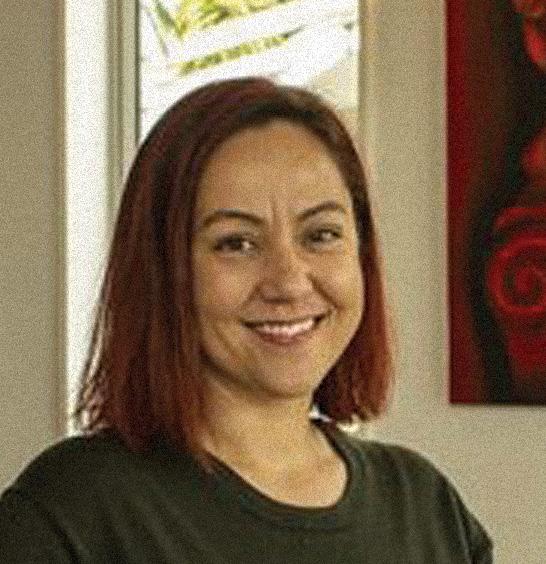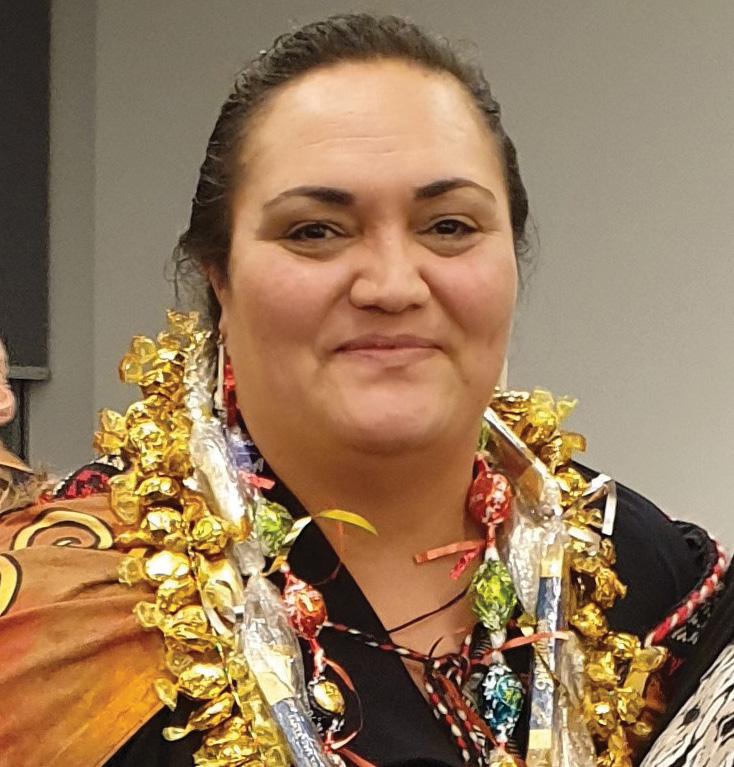
4 minute read
my editorship my editor
As her journey comes to an end, Amellia Kapa (Ngāpuhi, Te Aupouri) reflects on her time as editor of Midwife magazine. I’m often asked how the change came about. What inspired me to switch from journalism to midwifery? Well, somewhere along the way, I realised I wanted to do something that helped enrich other people’s lives. I just hadn’t quite figured out how. As a 26-year-old, I met a midwife in Melbourne and when I told her I had been present at the births of all three of my brothers (two homebirths and one hospital birth) a lightbulb came on and I realised what a beautiful gift my māmā had given me all those years before.
The journey to become a midwife began and I thought my writing skillset, although useful, would become background noise. But five years after gaining registration, I stumbled across the College’s ad for the communications advisor role and it seemed like the perfect combination of my skillsets and experience. I have relished the opportunity to tell the stories of midwives and whānau each quarter and produce a tangible product from what starts off as a single page of ideas.
A couple of articles in particular stand out for me as significant achievements over my editorship; Lucia’s story in the March 2022 issue, about sexual abuse and how we can be more mindful of it as midwives, was both pertinent and personal. The breakdown of moral distress in the June 2022 issue and how it affects our workforce also felt like an important conversation; one which struck a chord with many midwives.
One of my main goals as editor has been to normalise use of te reo Māori throughout the magazine, slowly but surely increasing the use of kupu Māori without English translations. Telling more Māori stories and pulling in threads of mātauranga Māori has also been intentional. A perfect example of this can be found in the June 2022 issue, where I shared the mātauranga of the three hearts, gifted to humans by the atua.
Working for the College has been a wonderful experience; I have gained insights into the invisible, constant nature of the mahi occurring behindthe-scenes to ensure our collective voice as midwives is heard at every table. The home fires, or ahi kaa, must never be allowed to extinguish, and this is how I perceive the College’s role; each advisor and staff member stokes the ahi kaa, so that midwives can continue to do the vital mahi we have all signed up to do.
My time as editor now comes to an end, as I dive deeper on a journey of returning to rongoā Māori (traditional Māori healing) and the wisdom of my tūpuna. It has been my honour to share the stories of those I have met along the way, to work alongside the wāhine pūmau of the College, and to be of service to midwives throughout Aotearoa.
Nei rā aku mihi whakawhetai ki a koutou. Mauri ora ki a tātou katoa! square
College President Nicole Pihema (Ngāpuhi, Te Rarawa) reflects on working with Amellia through her time as editor.

Each time I’m asked to write an article or provide insight into events, I seem to face this enormous stumbling block. The block usually presents itself whenever I’m questioning whether I should (or could) write about something I’m truly passionate about, or how I can word it to offend as few people as possible. I often wonder whether that was what members wanted; a President who wrote from their heart, or wrote from their head. But I have to be sincere to myself and to members. I need to be transparent; I cannot be hiding behind a thesaurus of words that do not show the real me - the me who writes what I think, rather than what you want to hear. My evolution - from my first contributions as College President, to now - has been a journey in itself and I have Amellia Kapa to thank for that.
I don’t even remember the exact year I first met her, as a student midwife who had come to Te Tai Tokerau for a rural placement. Looking back now, it feels like so long ago. Over the years, I’ve been privy to her midwifery practice through social links and the casual catch-up at events, if or when we both happened to attend.
There’s something about being in the company of other Māori that settles the soul: the whakawhānaungatanga that occurs; the connections that are made; the familial ties that are found. It’s a unique kind of connection that can’t be found anywhere else; I can’t quite describe it. It’s like our tūpuna set us all on paths to reconnect and discover how our tūpuna knew one another, so that we could reweave and strengthen the ties that bind us. All I know is, these reconnections are definitely no accident. I remember one phone call in particular, that started out business-as-usual, but somehow evolved into a tikanga wānanga, around how our current mindset is disrupted and challenged by mātauranga which confronts ingrained education intended to mould our minds into obedience. How does a phone call go from ‘What do you want to talk about this edition?’ to an entire wānanga on the de-construction of a colonised mind?
This journey has been profound, and having Amellia understand me, without having to detail every aspect of my upbringing and why I think this way and that way, has been a blessing. Therefore, hopefully a tohu for you all. Amellia has helped me to understand how to process my thoughts into words and when I am stuck, she literally - like an artisthelps me to express those whakaaro cleanly.
Tūpuna connections do not end when Amellia pursues her calling to rongoā. In fact, they only get stronger. Thank you Amellia, for sharing your mātauranga and being a part of my journey.
He waimarie mō tō haerenga e whai ake nei, mō āke tonu atu. square







